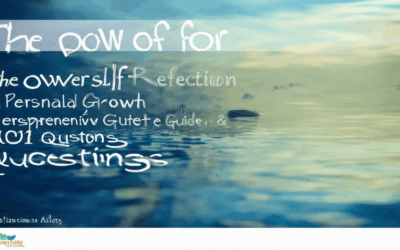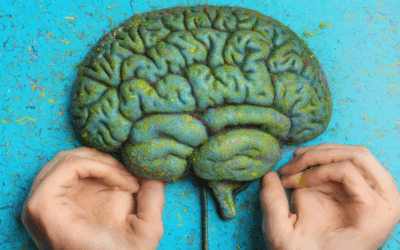Are you tired of feeling overwhelmed and stressed out? Do you dream of living a life where you feel calm, relaxed, and in control? You’re not alone. Millions of people struggle with stress every day, but there is hope. By making a few simple changes to your daily routine and adopting some powerful stress-reducing strategies, you can achieve a long-lasting stress-free lifestyle that brings you lasting peace and happiness.
In this comprehensive guide, we’ll explore the essential habits and mindset shifts required to cultivate a sustainable stress-free lifestyle. From implementing stress-relieving morning routines to prioritizing self-care and making intentional choices, we’ll cover everything you need to know to break the cycle of chronic stress and achieve a sustained state of emotional balance and well-being.
We’ll delve into the most effective strategies for incorporating stress-reducing activities into your daily schedule, including exploring different types of exercise and physical activity, learning to manage technology and digital distractions, and establishing a consistent sleep schedule and bedtime routine.
By the end of this guide, you’ll have a clear understanding of what it takes to live a stress-free life and be equipped with the knowledge and tools necessary to make it a reality. So why wait? Let’s get started on your journey to a happier, healthier, and more balanced you.

Simple Changes to Achieve a Longlasting Stressfree Lifestyle
I’ve learned that making small adjustments to my daily routine has significantly impacted my overall wellbeing.
- Start with Morning Meditation : Begin each day with a short meditation session to set a positive tone and reduce stress levels.
- Incorporate Physical Activity : Regular exercise not only improves physical health but also boosts mood and energy levels.
- Prioritize Sleep : Aim for 7-8 hours of sleep each night to allow your body and mind to recharge.
- Nourish Your Body : Focus on consuming whole, nutrient-rich foods to support optimal health and wellbeing.
- Practice Mindfulness : Engage in activities that promote mindfulness, such as yoga or deep breathing exercises, to stay present and centered.
- Set Boundaries : Learn to say “no” and establish healthy limits to protect your time and energy.
- Schedule Downtime : Make time for relaxation and leisure activities to avoid burnout and maintain a sense of balance.
- Stay Connected : Nurture relationships with loved ones and engage in social activities to combat loneliness and isolation.
- Practice Gratitude : Reflect on the things you’re thankful for each day to cultivate a positive mindset and appreciate life’s simple joys.
- Seek Support : Don’t hesitate to reach out for help when needed – whether it’s a friend, family member, or mental health professional.
By incorporating these simple yet effective changes into your daily routine, you’ll be well on your way to achieving a long-lasting stress-free lifestyle.
Additional Tips for Maintaining a Stress-Free Lifestyle
Remember, taking care of yourself is an ongoing process that requires effort and dedication.
- Be Patient : Recognize that developing healthy habits takes time and that setbacks are a normal part of the journey.
- Stay Flexible : Life is unpredictable, and circumstances may change suddenly – adapt to new situations and find ways to cope.
- Practice Self-Care : Prioritize activities that bring you joy and help you relax, such as reading, listening to music, or taking a warm bath.
- Stay Hydrated : Drink plenty of water throughout the day to maintain physical and mental health.
- Avoid Multitasking : Focus on one task at a time to minimize stress and increase productivity.
Final Thoughts
Creating a stress-free lifestyle is a journey, not a destination – it’s essential to be kind to yourself and acknowledge that progress may be slow.
Essential Habits and Mindset Shifts for a Sustainable Stress-Free Lifestyle
To cultivate a sustainable stress-free lifestyle, it’s crucial to adopt certain habits and mindset shifts that promote overall wellbeing.
-
Habit 1: Prioritize Self-Care
Make time for activities that nourish your mind, body, and soul, such as meditation, yoga, or reading.
As I always say, taking care of yourself is not selfish, it’s necessary. By prioritizing self-care, you’ll be better equipped to handle life’s challenges and maintain a sense of calm.
For more information on self-care practices, check out our article on Self-Care Practices for a Stress-Free Lifestyle .
-
Habit 2: Practice Gratitude
Focusing on what you’re thankful for can shift your perspective and reduce stress.
I recommend keeping a gratitude journal to help you stay mindful of the positive aspects of your life.
Learn more about the benefits of gratitude in our article on The Power of Gratitude in Reducing Stress .
-
Habit 3: Set Boundaries
Learning to say “no” and set healthy boundaries with others can help prevent burnout and reduce stress.
Remember, saying “yes” to everything doesn’t mean you’re a people-pleaser, it means you’re a yes-man/woman who needs to learn how to say no.
Discover more tips on setting boundaries in our article on How to Set Boundaries and Reduce Stress .
-
Mindset Shift 1: Reframe Negative Thoughts
Challenging negative thought patterns can help you approach situations with a more optimistic outlook.
Try to reframe negative thoughts into positive affirmations, focusing on solutions rather than problems.
Learn more about reframing negative thoughts in our article on Reframing Negative Thoughts for a More Positive Outlook .
-
Mindset Shift 2: Cultivate Resilience
Becoming more resilient can help you bounce back from setbacks and maintain a sense of calm under pressure.
Practice resilience-building activities, such as journaling or talking to a friend, to help you cope with challenging situations.
Discover more tips on cultivating resilience in our article on Cultivating Resilience in the Face of Adversity .
By incorporating these habits and mindset shifts into your daily life, you’ll be well on your way to cultivating a sustainable stress-free lifestyle.
Remember, it’s all about making small changes that add up over time. Start with one habit or mindset shift and gradually work your way up to achieving a more balanced and peaceful life.
For more information on stress management and wellbeing, visit our website at Live On Blogs .

Creating a Stress-Free Lifestyle That Truly Lasts
I’ve learned that prioritizing self-care and making intentional choices is essential for achieving a stress-free lifestyle that truly lasts.
- Set Boundaries: Establishing clear boundaries with others helps protect my time and energy, allowing me to focus on what’s truly important.
- Prioritize Self-Care: Regular exercise, meditation, and spending time in nature help reduce stress and increase feelings of calm and well-being.
- Practice Mindfulness: Being present in the moment and letting go of worries about the past or future has been incredibly liberating.
- Nurture Relationships: Surrounding myself with positive, supportive people who uplift and encourage me has made a significant impact on my overall happiness.
- Cultivate Gratitude: Focusing on the things I’m thankful for each day helps shift my perspective and keeps me grounded.
- Embrace Imperfection: Recognizing that perfection is unrealistic and that it’s okay to make mistakes has allowed me to relax and enjoy life more fully.
- Take Breaks: Allowing myself time to rest and recharge has helped prevent burnout and increased productivity.
- Seek Support: Reaching out to friends, family, or a therapist when needed has provided me with the support and guidance I require to navigate challenging situations.
- Practice Forgiveness: Letting go of grudges and forgiving myself and others has freed me from emotional burdens and allowed me to move forward with greater ease.
- Cultivate a Growth Mindset: Embracing challenges and viewing failures as opportunities for growth has helped me develop resilience and confidence.
- Stay Present: Focusing on the present moment and letting go of worries about the future or regrets about the past has brought me greater peace and contentment.
By incorporating these habits into my daily routine, I’ve been able to create a stress-free lifestyle that truly lasts.
Additional Resources:
- Mindful.org
- Calm.com
- Happify.com
Live On Blogs
For more information on creating a stress-free lifestyle, visit LiveOnBlogs.com .

Building a Foundation for a Stress-Free Lifestyle
I’m excited to share my top tips for creating a stress-free lifestyle that brings lasting peace and happiness.
-
Start Small
Begin by making tiny changes to your daily routine that can have a significant impact on reducing stress levels. Try waking up 15 minutes earlier each day to meditate, practice deep breathing exercises, or enjoy a quiet cup of coffee in peace.
-
Prioritize Self-Care
Taking care of your physical and emotional needs is essential for managing stress. Make time for activities that bring you joy, whether it’s reading a book, taking a relaxing bath, or practicing yoga.
-
Set Boundaries
Learn to say “no” to commitments that drain your energy and say “yes” to those that nourish your mind, body, and soul. Set realistic expectations with others and communicate your needs clearly.
-
Foster Gratitude
Cultivate a sense of gratitude by reflecting on the things you’re thankful for each day. Keep a gratitude journal, write down three things you appreciate, or share your gratitude with a friend or loved one.
-
Practice Mindfulness
Mindfulness is the practice of being present in the moment, without judgment. Try incorporating mindfulness into your daily routine through meditation, deep breathing, or simply paying attention to your senses.
-
Nurture Relationships
Surround yourself with people who uplift and support you. Invest in relationships that bring joy and positivity into your life, and don’t be afraid to set boundaries with those who may be draining your energy.
-
Get Moving
Regular exercise can help reduce stress and anxiety by releasing endorphins, also known as “feel-good” hormones. Find an activity you enjoy, whether it’s walking, running, swimming, or dancing, and aim to incorporate it into your daily routine.
-
Seek Support
Don’t be afraid to ask for help when you need it. Reach out to friends, family, or a mental health professional for support and guidance. Remember, taking care of your mental health is just as important as taking care of your physical health.
Remember, building a stress-free lifestyle takes time and effort, but the rewards are well worth it. By incorporating these tips into your daily routine, you’ll be well on your way to creating a life filled with peace, happiness, and fulfillment.
Strategies for Incorporating Stress-Reducing Activities into Your Daily Schedule
To achieve a consistent sense of calm and wellbeing, it’s essential to incorporate stress-reducing activities into your daily routine.
-
Practice Mindfulness Meditation
Mindfulness meditation involves focusing on the present moment, often through deep breathing exercises or guided meditations. Regular mindfulness practice can reduce stress levels, improve mood, and increase feelings of calmness.
-
Incorporate Physical Activity
Regular physical activity, such as walking, yoga, or swimming, can help reduce stress and anxiety by releasing endorphins, also known as “feel-good” hormones. Aim for at least 30 minutes of moderate-intensity exercise per day.
-
Engage in Creative Activities
Creative pursuits, such as painting, drawing, or playing music, can provide a healthy distraction from stressors and promote relaxation. Set aside time each day to engage in a creative activity that brings you joy.
-
Prioritize Sleep and Relaxation
Adequate sleep and relaxation are crucial for managing stress. Establish a consistent bedtime routine, aim for 7-8 hours of sleep per night, and take regular breaks throughout the day to relax and recharge.
-
Nourish Your Body with Healthy Foods
Eating a balanced diet rich in whole foods, fruits, vegetables, and lean proteins can help support mental health and reduce stress levels. Limit processed and sugary foods that can exacerbate anxiety and fatigue.
-
Connect with Nature
Spending time outdoors, whether walking in a park, hiking, or simply sitting in a garden, can have a calming effect on the mind and body. Make time each day to connect with nature and reap its benefits.
-
Set Boundaries and Prioritize Self-Care
Establishing healthy boundaries and prioritizing self-care is essential for managing stress. Learn to say “no” to non-essential commitments, set realistic goals, and schedule time for activities that nourish your mind, body, and spirit.
-
Seek Social Support
Surround yourself with positive, supportive relationships and seek help when needed. Talking to friends, family, or a therapist can provide valuable emotional support and help manage stress.
-
Stay Organized and Manage Time Effectively
Effective time management and organization can reduce stress levels by helping you stay on top of tasks and responsibilities. Use tools like calendars, to-do lists, and reminders to stay organized and focused.
By incorporating these stress-reducing activities into your daily routine, you can achieve a consistent sense of calm and wellbeing, leading to improved overall health and happiness.

Breaking the Cycle of Chronic Stress
To achieve a sustained state of emotional balance and wellbeing, it’s essential to adopt a holistic approach that encompasses physical, mental, and emotional aspects.
-
Practice Mindfulness and Meditation
Mindfulness and meditation are powerful tools for reducing stress and anxiety. Regular practice can help calm the mind, reduce muscle tension, and increase feelings of relaxation and calmness.
Start with short sessions, ideally 10-15 minutes, and gradually increase duration as you become more comfortable with the practice. You can find guided meditations online or through mobile apps like Headspace or Calm.
-
Engage in Physical Activity
Regular exercise is a natural stress-reliever and mood-booster. Aim for at least 30 minutes of moderate-intensity physical activity per day, such as brisk walking, cycling, or swimming.
Incorporate activities that bring you joy, whether it’s dancing, hiking, or playing sports. Exercise not only reduces stress but also improves sleep quality, boosts energy levels, and enhances overall wellbeing.
-
Nourish Your Body with Whole Foods
A well-balanced diet rich in whole foods, fruits, vegetables, and lean proteins can help alleviate symptoms of stress and anxiety.
Avoid sugary and processed foods, which can exacerbate stress and lead to energy crashes. Opt for nutrient-dense foods that support brain health, such as omega-3 fatty acids found in salmon and walnuts.
-
Prioritize Sleep and Relaxation
Adequate sleep is crucial for managing stress and promoting emotional balance. Aim for 7-9 hours of sleep each night and establish a relaxing bedtime routine to signal to your body that it’s time to wind down.
Create a sleep-conducive environment by ensuring your bedroom is dark, quiet, and cool. Invest in a comfortable mattress and pillows to enhance sleep quality.
-
Connect with Nature and Others
Spend time outdoors, whether it’s walking in a park, hiking in nature, or simply sitting in a garden or on a balcony with plants.
Nurture relationships with loved ones, friends, and community members. Social connections play a vital role in reducing stress and promoting emotional wellbeing.
-
Practice Self-Care and Boundaries
Take care of yourself by setting realistic boundaries, prioritizing tasks, and learning to say “no” when necessary.
Engage in activities that bring you joy and help you relax, such as reading, listening to music, or taking a warm bath.
Conclusion
Breaking the cycle of chronic stress requires a multifaceted approach that incorporates physical, mental, and emotional aspects. By incorporating these lifestyle modifications into your daily routine, you’ll be better equipped to manage stress, achieve emotional balance, and cultivate a deeper sense of wellbeing.




0 Comments